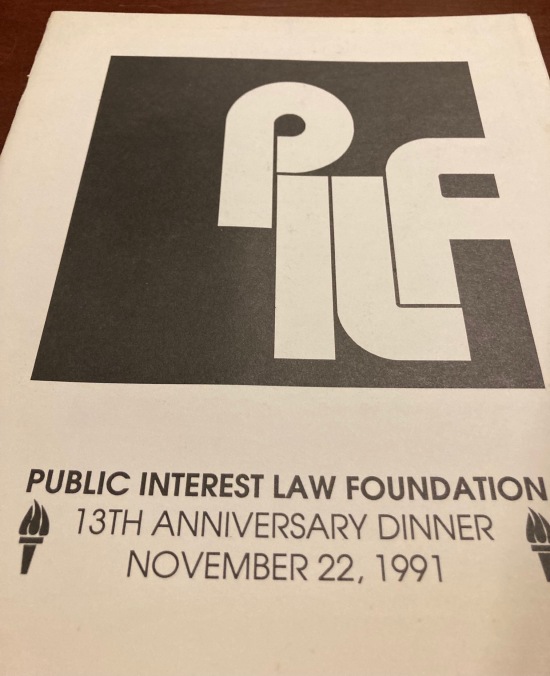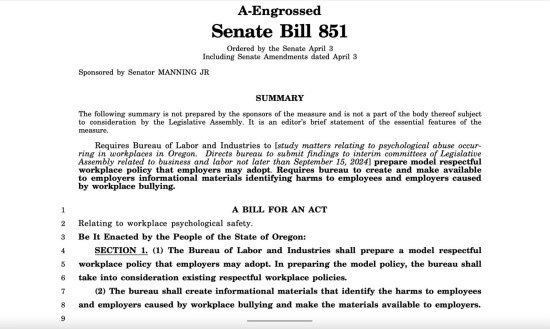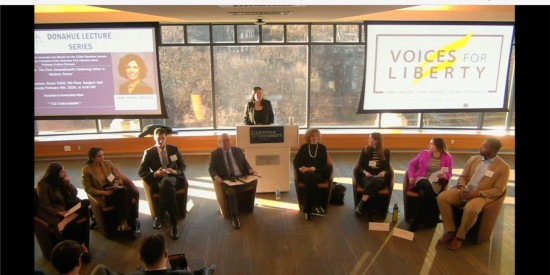
Pages from the PILF fundraising dinner journal
When I discuss career planning with my students, I often urge them to pursue interesting pro bono and volunteer activities not only for the contributions they can make, but also because these activities may open doors to new opportunities.
That certainly was my experience of serving on the board of directors of a small charitable foundation based at New York University, my legal alma mater, as relatively recent graduate of the Law School.
Unlike many law professors whose aspirations to enter academe were present during their law school days, my path to this world was not nearly as intentional. I entered law school wanting to become a public interest lawyer and eventually pursue a career in politics and public policy. During the years immediately following graduation, I was squarely headed in those directions, starting my legal career as Legal Aid lawyer in New York City and becoming active in a local reform Democratic club in central Brooklyn. Eventually, however, the bloody world of academe would draw me away from the bloodsport of litigation and politics.
NYU PILF
Four years after graduating from law school, I accepted an invitation to join the board of directors of the NYU Public Interest Law Foundation (PILF), a small foundation that gave seed-money grants to fledgling public interest and community law projects. The PILF board of directors was comprised of law students (who served dual roles as officers), NYU law faculty, and various lawyers and legal activists. PILF raised most of its money from NYU alums who pledged a share of their income and from New York City law firms that co-sponsored an annual fundraising banquet, which typically drew several hundred people.
I served for four years on the PILF board, the latter three as its chairperson. It was enormously satisfying to be part of an organization whose main purpose was to support new, creative initiatives for providing legal services to underserved groups and for engaging in law reform work. Overall, we had an energetic, high-morale cohort of board members, and our work earned two awards from the National Association for Public Interest Law (now Equal Justice Works) for overall program growth.

In the process, I so enjoyed working with the student officers to organize our events. And I learned a ton about how non-profit organizations work, while building skills and insights that I’ve drawn upon throughout my career.
Unanticipated door opener
One of the PILF board members happened to be a co-coordinator of the Lawyering Program at NYU Law School, an innovative, full-year course that introduces first-year law students to essential legal skills, such as legal writing, research, client interviewing and counseling, negotiation, and advocacy. After one of our board meetings, I casually asked my board colleague if the Lawyering Program might be hiring new instructors any time soon. She said yes and invited me to send her a resume.
I’m not sure what prompted me to make that inquiry. At the time, I was serving as an assistant attorney general in the Labor Bureau of the New York State Attorney General’s office. Although I enjoyed many aspects of the job and worked with excellent attorneys, I knew that I didn’t want to be a litigator for the rest of my legal career. However, I didn’t have a clear idea of where I wanted to go. At that juncture, I certainly did not have an academic career in mind. Teaching in the Lawyering Program simply sounded like an interesting opportunity.
Long story short, I went through a series of interviews and received an offer to join the Program as an entry-level instructor, which I enthusiastically accepted.
I loved teaching in the Lawyering Program. It was very hard, teaching-intensive work, quite a grind for an academic position. I stayed for three years (the maximum permitted for instructors), serving as a co-coordinator of the Program during my third year. During that time, I gained experience and credentials that would make me competitive for tenure-track and other long-term law teaching jobs. I put myself “on the market,” as they say, and came out of it with a tenure-track appointment at Suffolk University Law School in Boston, where I’ve been ever since.
Imagining alternatives
Let’s reverse engineer this path and imagine that I had turned down that invitation to join the PILF board of directors. It’s quite possible that my career sojourn wouldn’t have been nearly as rich and rewarding as it has turned out to be.

Of course, frequent pondering on the “what ifs” in one’s life is a recipe for crazy-making speculation based on a known reality vs. an open-ended, anything-goes alternative. It’s probably wiser to dwell on decisions made and evaluate them accordingly.
In my case, I see two decisions here that led to very good things: (1) joining the PILF board of directors; (2) returning to NYU to teach in its Lawyering Program. I firmly recall making both decisions without reservation, based largely on my belief that I would enjoy these associations immensely. And I did. The bonus was that both led to unforeseen opportunities.
On occasion, I encounter those who make career moves based only on perceived sure bets. Their career moves are carefully plotted, and their trajectories are carefully planned. They avoid even minor risks and pass on commitments of time and energy that potentially divert them from their plan.
Honestly, that may be the best bet toward success. But it also can lead to disappointment, either because one fails to reach certain goals despite their disciplined efforts or finds that what they thought they wanted turned out to be lacking in material ways.
My career approach has been a little different, trying to split the difference between an inflexible path and a series of random choices. The lesson from the story shared here, as I see it, is that I trusted my strong instincts about two opportunities, despite that neither came with any guarantees beyond their own shelf lives.
I’m hardly the only person who has enjoyed some successes by making decisions in such a manner. But at a time when FOMO (fear of missing out) and ROI (return on investment) seem to control too much decision making about vocational choice, I’m happy to put in a good word for taking smart chances now and then.
***
On origin stories: During the ongoing process of culling the mounds of printed material in my possession, I’m often finding stuff that brings back very meaningful memories. Some recall certain origin stories, i.e., those moments that led to significant, defining things in my life. This is the second of three that I’ll be sharing on this blog, including lessons learned from them. My first recollection, “Origin story: Stumbling upon an interview about workplace bullying,” can be found here.






